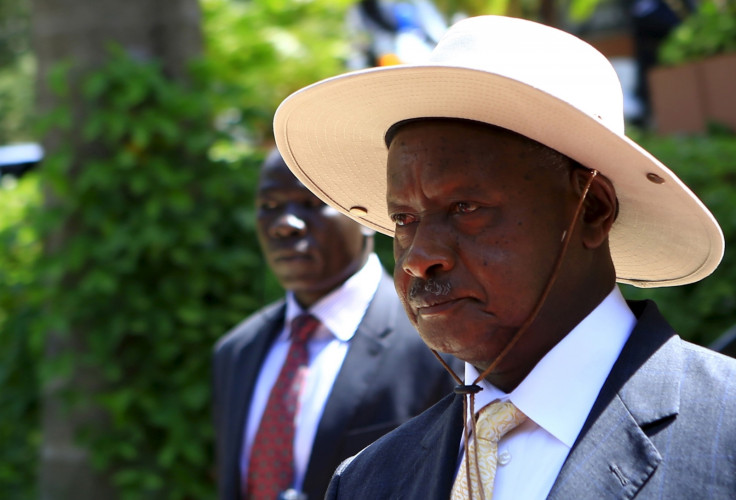Uganda: President Museveni releases rap song as he seeks new term after 30 years in power

Ugandan President Yoweri Museveni has released a rap song to promote his campaign in the run-up to the 2016 presidential election.
The 70-year-old leader has been in power since 1986. His song is entitled "Yengoma", which translates as "the drum", a symbol of power in Ugandan culture.
"That is his song, the voice is his," Museveni's press secretary Tamale Mirundi told AFP . "The president uses many forms to relay messages he considers important, music and proverbs being part of that."
In a similar move before the 2011 election, which he won, Museveni released the song "Mpenkoni", loosely meaning "give me a walking stick".
Museveni has already been given the green light to represent his National Resistance Movement (NRM) party in next year's election.
Controversy has arisen after former prime minister Amama Mbabazi and leader of the opposition Forum for Democratic Change party (FDC), Kizza Besigye, were arrested earlier in July, after announcing their candidacy.
Both politicians, who were released shortly after, are former allies of Museveni who now believe the president should step aside and give space to other potential leaders.
FDC said the fact that key elements who previously supported Museveni are now running against him gives a good chance to the opposition to win the election.
Changes to the constitution
The first presidential election since Museveni came to power was held in 1996. In 2001, after Museveni was elected for the second time, his allies started a campaign aiming to loosen presidential terms and allow the leader to run for a third term in the 2006 election.
The constitution was changed amid local and international outrage, with critics accusing the leader of seeking life presidency and persecuting political opponents. Prior to the amendment, Uganda's constitution allowed the president to stay in power only for two terms.
The 2006 election, which Museveni won, was the first multi-party election after the government lifted a 19-year restriction on political activity, according to which those who run for candidacy had to do so as individuals and not as representatives of their parties.
According to Museveni, who imposed the restriction in 1986, this was aimed at preventing ethnic divisions. Critics, however, accused the leader of trying to curb party activity.
© Copyright IBTimes 2025. All rights reserved.






















